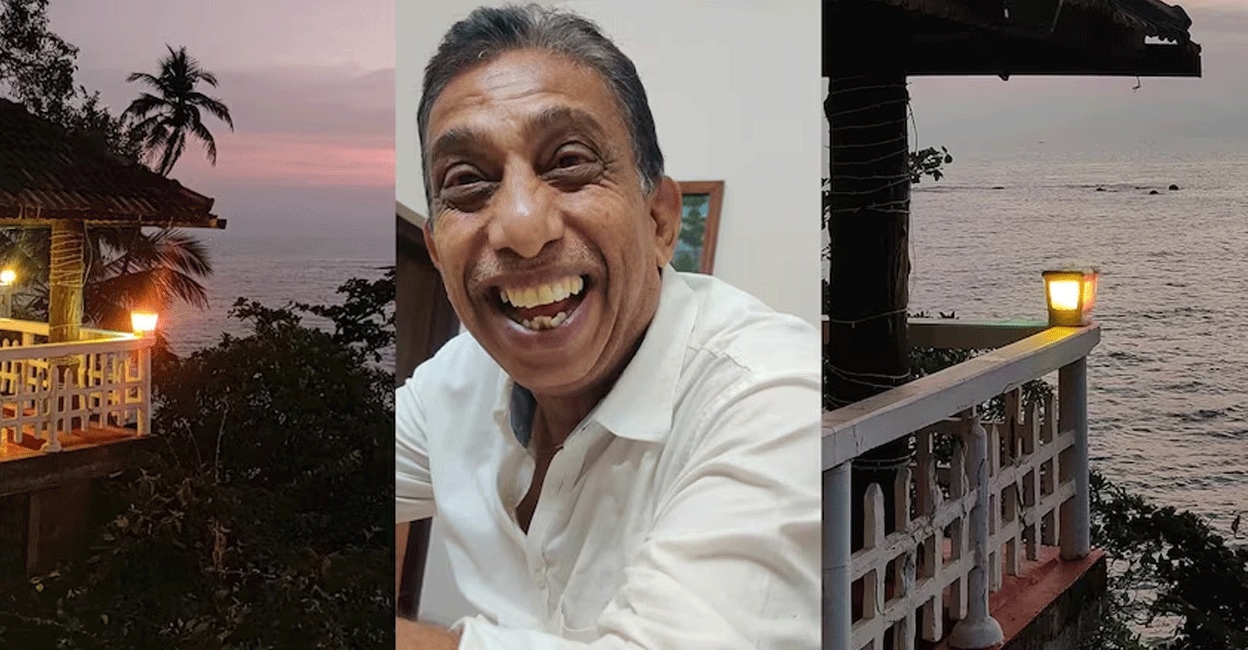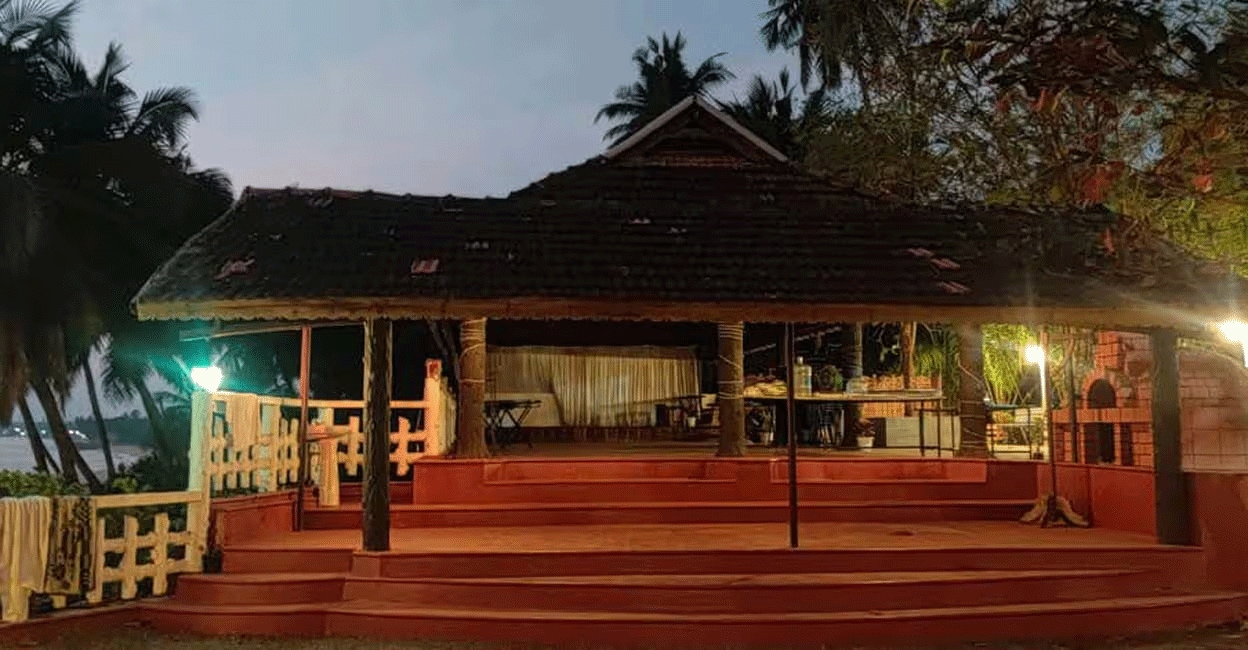What is Kerala tourism's K-Home projects, how will it benefit budget travellers?

Mail This Article
In a bid to spruce up the hospitality sector in Kerala, the Keala state government, in its recent budget, has introduced a unique project titled K-Home, whereby tourists are provided space in unoccupied houses at reasonable rates. As part of the project, hundreds of vacant homes in popular destinations of Kerala will soon roll out red carpets to welcome tourists from across the globe. The initiative would be a boon for budget travellers and an added income for many, including expatriates.
Before delving into the nitty-gritty of the K-Home scheme, let’s take a peek into ‘Seashell Haris Beach Home’, a homestay that has caught the imagination of travellers over the years. Multiple scores of tourists who had stayed at the facility in Kannur’s Adikadalayi had experienced the pristine charm of the Arabian Sea on countless evenings munching fresh sea prawns that were fried following the haloed credo of the Malabar cuisine. The success story of ‘Seashell Haris Beach Home’ reflects the sweat, tears and dreams of Haris, the facility's founder. It is also the story of how a person with humble beginnings became a tourism professional.

Representative of many
As a child, Haris used to walk to school every day on unpaved pathways, as roads were a distant dream then. He flew to the Gulf (West Asia) after earning a polytechnic diploma and working there for three years. With the dream of becoming an entrepreneur, Haris returned home at the age of 25. As a salesman and supervisor, he was associated with a textile shop in Kozhikode for the next six years. After learning the nuances of embroidery from a tailoring institute run by nuns near the textile shop, Haris returned to his home city, Kannur. They opened a shop to stitch maxi dresses and churidars. His exquisite embroidery and stitching caught the eye of the owner of ‘New Store Shop’, the biggest outlet in Kannur then, and Haris was given an offer to do embroidery and stitch churidars as per the demand of the shop, which he gleefully accepted. And that was a game changer in Haris’ life.
He opened a shop in Kannur town in the year 2000, and at that time, foreign tourists stayed only at Mascot Beach Resort in Kannur. Jithu, owner of Mascot Resort, used to bring foreign tourists to Haris’ shop so that they could stitch dresses as per their taste. After two to three years, a tourist came to his shop, and Haris was surprised to know that that person was staying at his home village, Adikadalayi. “How come a foreigner stayed in my village,” he wondered. This incident rekindled his desire to become an entrepreneur.

A homestay in Adikadalayi was providing accommodation to tourists then. The ‘Costa Malabari' homestay, which is run by Varghese and Kurian, who had been instrumental in churning out quality and popular travel magazines from the ‘Travel Desk’ stable, in Adikadalayi had received many tokens of appreciation from the world-class travel magazine Lonely Planet’.
After getting inspired by the services offered by ‘Costa Malabari’, Haris opened the doors of his homestay ‘Seashell’ to domestic and foreign tourists in 2007. Initially, there were no guests, and one day, an Italian by the name of Peter, who visited Kannur frequently, took a room for rent. It was Peter who made Haris aware of the huge potential of the picturesque Adikadayali beach. Haris’ wife, Sajitha, was the first chef of the homestay. Sajitha weaved a culinary magic with Muslim cuisine and dished out sweet ‘kayada’, plantain curry, ghee rice, coconut-based non-spicy prawns curry, tapioca fry, boiled taro, yam fry and arrowroot fry, among others, to the delight of both domestic and foreign tourists. Various curries and delicacies were made with the fresh catch from the sea, including the delicious white pomfret.
The homestay guests got a new experience when Haris started organic farming with a bang. By asking the guests to cut plantain flowers and others and including them in dishes during farm visits, Haris became a spokesperson of the much-appreciated ‘Responsible Tourism’. To showcase the local culture, the guests are welcomed to the facility by boys and girls dressed in the traditional attire of the Muslims. The stage is also set for the tourists to interact with local residents. A demo on how to prepare ‘puttu’ or any other dish for breakfast is also carried out for the benefit of the tourists. An elderly man by the name of Kumaran would make ‘puttu kutti’ out of bamboo and also weave coconut fronds wearing the traditional Kerala costume. A full-fledged ‘sadya’ is also prepared in the foreground of the homestay. Without an iota of doubt, this is indeed ‘Responsible Tourism’.
The tourists will also get a first-hand experience on how coir is made from coconut husk and how rice is grinded with help of ‘ulakka’ (a long pestle). The local residents will also get tips to the tune of thousands of rupees, an additional income for them. The photos of various interesting activities at the homestay have gone viral through social media, and the popularity of ‘Seashell’ has only increased in many countries.
Questions raised over K-Home project
Many government-approved homestays and ‘serviced villas’ like ‘Seashell Haris Beach Home’ are functioning across the state. Small-scale individual entrepreneurs and ordinary people run the majority of them. According to the State Tourism Department, a homestay facility is where the guests live with the host's family and ‘serviced villas’ have the service of caretakers and cooks for the travellers' convenience.
The state government has announced the K-Home project and earmarked Rs 5 crore for the initiative when the existing modest homestays are not getting any financial and marketing support from the government. And why the K-Home project now when the ‘serviced villa’ scheme is up and running? To bring the unoccupied houses in the 10km vicinity of tourist spots such as Munnar, Fort Kochi, Kumarakom and Kovalam under the K-Home project, they should have been brought under the ambit of the ‘serviced villa’ initiative, and the government should have provided financial and marketing support to the new and existing entrepreneurs in equal measure. There is still time for the government to tread that path.
Majority of recognized homestays and serviced villas don’t have enough funds for marketing and are in dire straits due a drastic fall in tourist footfalls at their facilities. Moreover, there is a marked dip in inbound tourism in India, including Kerala, for various reasons. Kerala, which received nearly 11 lakh foreign tourists in 2017 and 2018 and about 12 lakh travellers from other countries before the outbreak of the Covid-19 pandemic, had a foreign tourist footfall of close to 7.5 lakh in 2024. And the reason for the poor response is multifold.
Interestingly, Keralites constitute 60 to 70 per cent (almost 1.25 crore) of the more than two crore tourists that visited various parts of the state in 2024. The K-Home project will hit the jackpot if the government targets the 1.25 crore Malayalees as potential customers. A robust online reservation system will help the cause in placing the K-Home project on the tourism map.
Scope for marketing
While looking at the financial aspect, the aim of the tourism department is to attract more tourists, both domestic and foreign, to the state. However, it will take many years for the K-Home brand to become a popular ‘keyword’ in search engines in the national and international landscape. ‘Serviced villa’ and ‘Grihasthali’ were coined by Kerala tourism on the same lines, and these appellations are facing similar branding challenges. The marketing potential could have been greater if the ‘Serviced villa’ had been named ‘Serviced Homestay’ and ‘Grihasthali’ as ‘Heritage Homestay’ or ‘Heritage Serviced Homestay’.
K-Home should be rechristened as ‘Serviced Homestay’ or ‘God’s Own Homes’ to get leverage in Google search engines and reap rich dividends for state tourism. The names would also get more attention on other online platforms. Moreover, the government should take appropriate steps to provide marketing support to existing homestays and serviced villas. Initiatives should also be taken to empower these facilities.

